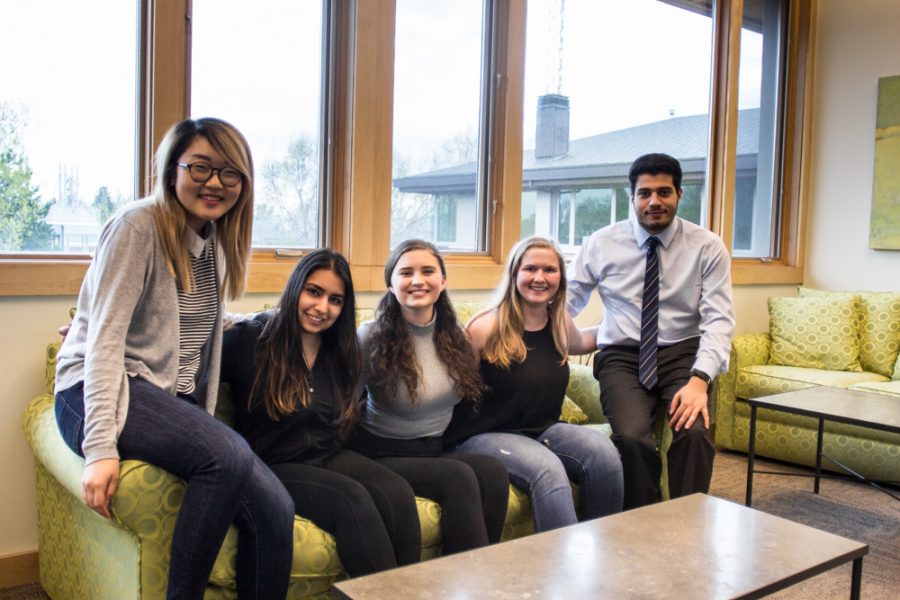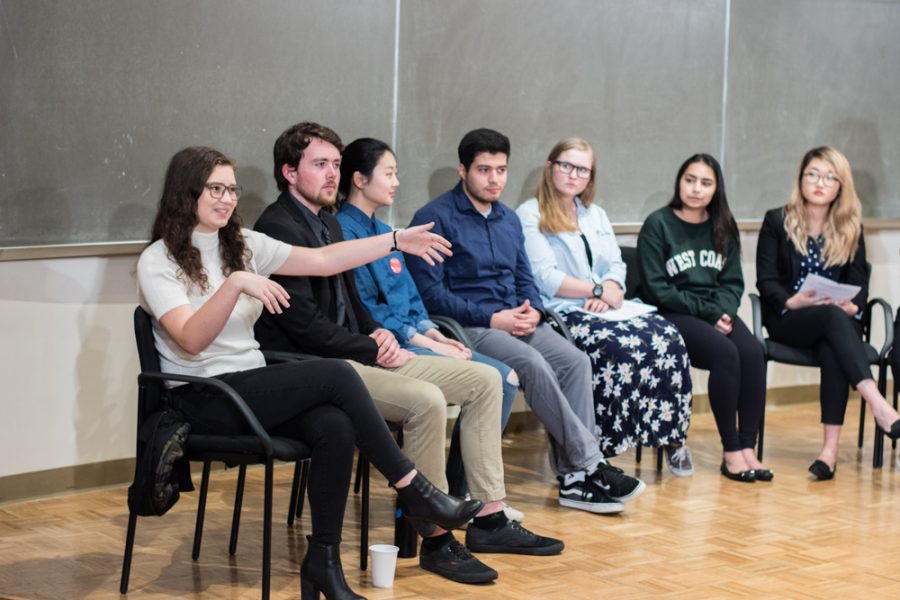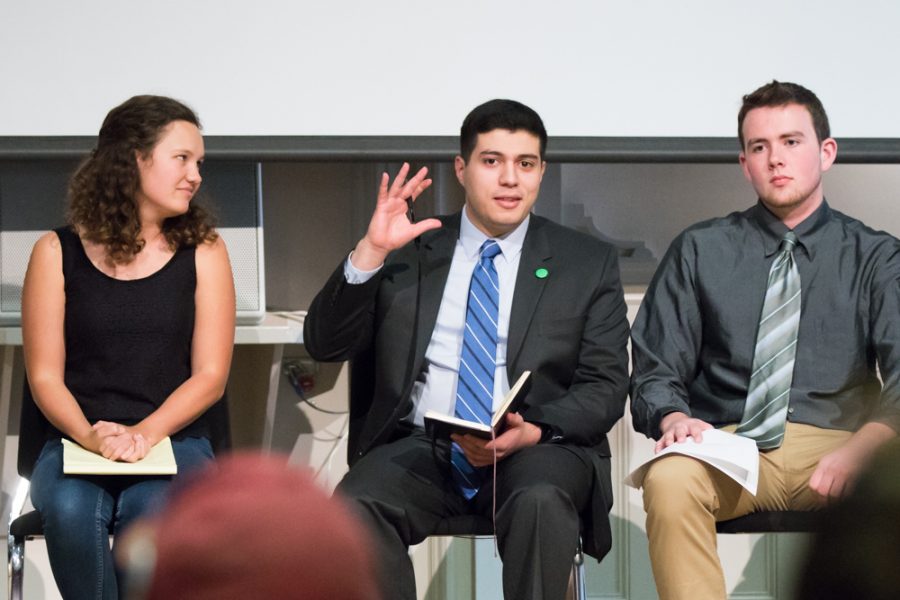
Members of the Associated Students of Whitman College (ASWC) and club representatives convened at Wednesday’s Town Hall meeting to discuss ASWC’s proposed Emergency Development Fund.
Spearheaded by Finance Chair junior David Changa-Moon, ASWC proposes to reallocate $166,000 from its approximately $300,000 endowment in order to establish a fund for students who find themselves in emergency situations and are in need of financial assistance.
As it stands, emergency financial assistance is provided by Dean of Students Chuck Cleveland’s office. However, as a result of forthcoming budget cuts, his office will no longer have sufficient money in its annual budget to guarantee financial assistance to students who find themselves in an emergency situation.
Examples of past assistance provided by Cleveland’s office include financing a student’s airfare so he could return home for his father’s funeral and purchasing glasses for a student who was otherwise unable to do so.
“Many students can handle these experiences, but Chuck Cleveland finds that about the bottom third of financial aid recipients have a great deal of difficulty meeting their emergency needs,” said ASWC Vice President and Chairman of Student Affairs senior Roman Goerss.
According to Goerss, Cleveland’s office spends approximately $10,000 a year in emergency assistance.
The administration has pledged to contribute $44,000 to this fund, for a grand total of $210,000, a figure that is projected to accrue an annual interest of $10,000.
“On average, [the fund’s] interest alone will be able to pay for student emergencies every year,” said Goerss.
Although the college’s money for emergency financial assistance would no longer come from Cleveland’s office, it would continue to be under his discretion.
Despite its good intentions, the Emergency Development Fund remains a fairly controversial proposal.
As ASWC has never before been in possession of such a substantial endowment, there are no bylaws stipulating how this money should be used.
Furthermore, given that ASWC is financed through student fees, current ASWC bylaws forbid the college from giving its money to any entity other than students. These laws also stipulate that ASWC money must be equally accessible to every student.
“The issue [this fund] would create is twofold,” said Goerss. “Number one, we’d be stepping away from that precedent. And number two, we would be taking money that was collected over the years from all students and setting it up so it would be available for specifically some students who were in particular financial circumstances,” said Goerss.
It is important to note, however, that student fees from the past few years are not a part of the endowment money.
Although the majority of club representatives in attendance agreed that the Emergency Development Fund was a worthwhile use of ASWC’s endowment, they grappled with questions of oversight, confidentiality, possible misuse of the fund by the administration, what would define an emergency, and who would qualify for assistance.
Despite being unable to come up with concrete answers to such questions, the majority of students in attendance agreed that ASWC should have some type of oversight of the fund and the ASWC Executive Council and Senate should continue pursing the creation of such a fund.
“I’m very intrigued by this,” said Campus Climate Challenge representative sophomore Liesl Olson. “I think it’s a good idea, but I do think that ASWC needs to have some oversight of the fund because otherwise it may be viewed as ASWC writing a blank check to the administration. But as long as you have that oversight I think it will set a precedent as to what exactly constitutes a student emergency. I’ll also be interested in how ASWC will decide who qualifies for assistance.”
Members of ASWC’s Executive Council along with ASWC Senators will further discuss the student feedback from the Town Hall meeting at the upcoming Senate Meeting on Sunday, Feb. 22 at 7:00 pm in Reid GO2. According to Goerss, the Emergency Development Fund will most likely be voted on at the April 5 Senate meeting. All Senate meetings are open to the public.
ASWC welcomes any student input regarding the fund. Questions and comments should be directed to Roman Goerrs at goerssre@whitman.edu.




